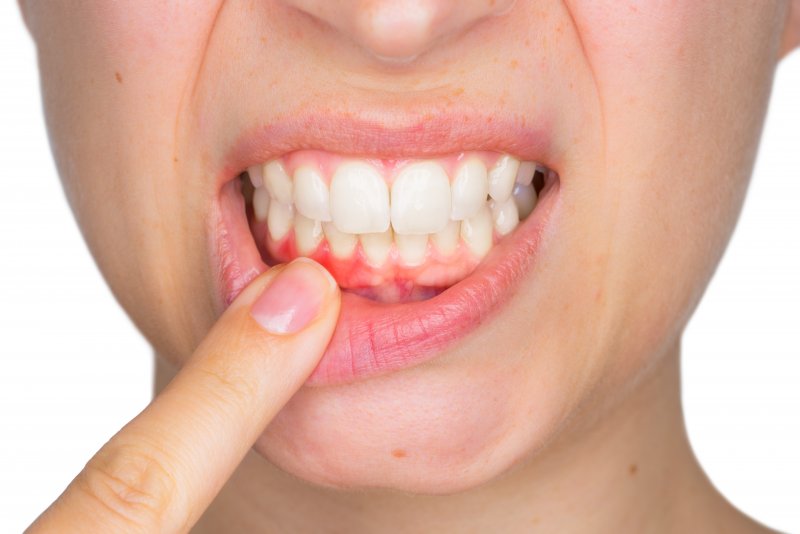
Your dad’s height, your mother’s curly hair, your grandmother’s dimples – there are many features you can inherit from your family. Could gum disease be passed down as well? Read along and find out whether this condition is genetic and what measures you can take to protect your teeth and gums – even if it runs in the family!
Is Gum Disease Genetic?
Some studies show that there might be a genetic link between our immune response and the development of chronic periodontitis. And according to the American Dental Association, genetics is a risk factor for developing gum disease. So, if your family has a history of gum disease, it’s likely you will experience gum problems too. Luckily, being proactive and taking proper precautions can help you prevent it. Mention this genetic predisposition to your dentist to ensure they’re vigilant during routine checkups!
Symptoms of Gum Disease
Gingivitis is the earliest stage of gum disease. If left untreated, it can develop into periodontitis and eventually lead to tooth loss. Addressing this infection as early as possible is critical to prevent it from spreading into the inside of your teeth, mouth tissues, and gums.
Here are some common symptoms to look out for:
- Red, swollen, and tender gums
- Bleeding when brushing or flossing
- Pus buildup between gums
- Loose teeth
- Receding gums
- Pockets of infection along the gum line
- Chronic bad breath (halitosis)
Tips to Prevent Gum Disease
Even if you’re genetically predisposed to it, there are several things you can do to prevent gum disease.
Brush Your Teeth
Practicing good oral care habits is essential to prevent plaque and bacteria buildup from irritating the gums. Make sure you brush every morning and night to eliminate harmful bacteria and plaque. Brush for at least two minutes and focus on the gum line, the back teeth, and your tongue.
Floss Every Day
Flossing between your teeth helps remove harmful substances from those hard-to-reach areas that brushing can’t get. It’s one of the best ways to remove bacteria that’s close to the gum line.
Eat a Well-Balanced Diet
Limit your intake of sugary, fatty, processed, and acidic foods as they can wreak havoc on your teeth and gums. Instead, eat a well-balanced diet that gives your mouth the nutrients it needs to thrive!
Avoid Tobacco Products
Smoking weakens your body’s immune system, which makes it harder for your gums to fight off infection. Keep your teeth and gums healthy by avoiding tobacco products, as they can increase your risk of periodontal disease.
Regularly Visit Your Dentist
Seeing your dentist bi-annually for cleanings and exams is essential to maintain good oral health. Plus, if they know you have a history of gum disease, they can look for signs of gingivitis and treat it before it progresses.
Next time you’re at a family gathering, ask your loved ones about their experiences with gum health. Being aware of any genetic conditions can help you be more proactive about your health. And by following these tips, you can maintain a healthy smile that lasts a lifetime!
About the Author
Dr. Travis Rottman brings almost a decade of experience to Sachse Family Dentistry. He is a proud member of the Academy of General Dentistry and completes numerous hours of continuing education each year to ensure his patients receive up-to-date dental care. Dr. Rottman believes regular visits are essential to diagnose and treat any oral health condition before it progresses, such as gum disease. To schedule a bi-annual checkup, visit our website or call (972) 848-0073.
